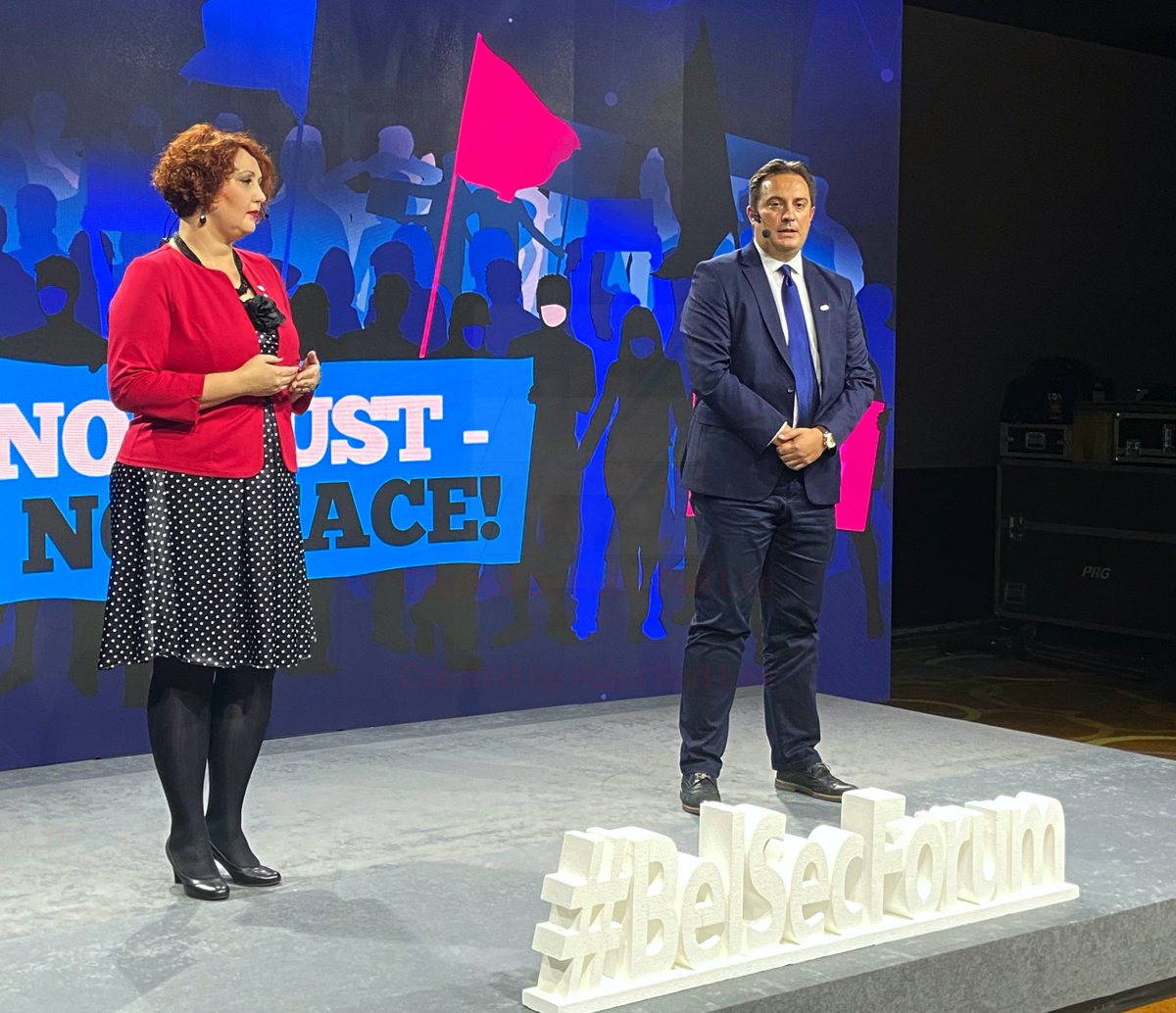Tenth Belgrade Security Forum Officially Closed
For reasons that are well known, the Belgrade Security Forum applied a “hybrid” model of event organization for the first time, having both an online platform and a studio.
Over these six days of our jubilee event, 24 sessions were held with 92 speakers and several thousand active online participants and followers. We hope that next year, Belgrade’s “Hyatt” hotel will once again be a meeting place – live and in person – for the community that our conference managed to gather in the first decade of its existence.
After six interesting and engaging days, here are the BSF 2020 conclusions:
- Even in the times of a pandemic, there are limits to curtailing freedoms and rights of citizens.
- In times of the pandemic many citizens across the globe felt powerless. Restoring our democracies needs more people to regain their voice, to be active participants and not passive followers.
- The pandemic was used as an excuse to accelerate “state capture” across the Western Balkans. Public was pushed further away from decision-making while democratic institutions were weakened. Therefore, it was only natural to place it at the center of our academic event’s attention.
- Depopulation in the Western Balkans might have been slowed down by the pandemic. Yet this is only temporary; societies are still threatened with the possibility of losing a quarter of their population within one generation. While developing, or recovering the economy is one aspect, increasing trust in institutions and the system is the only way to reduce this concerning trend.
- Multilateralism will continue to suffer from the growing ambitions of regional powers. If the effort to contain the virus is to be truly global, it has to be multilateral. While countries’ first instinct was to close, the need for global awareness, solidarity, joint action is greater than ever, as several vaccines are in the final stages of testing.
- Extremists on the right also tried to capitalize in the current context. They sought their imagined culprit, the significant “Other” among migrants, and those promoting globalism. Offering a false sense of protection and security to already frightened and confused people, rightwing extremists are “hunting in the dark”. Hate speech has become “normalized” as a way of communication, which can lead to radicalization on a larger scale.
- As traditional, special event at the BSF was dedicated to the dialogue between Belgrade and Pristina. This was the first time that highest representatives of two governments met at an event organized in the region, along with special envoy and representative of the EU and the US. Formats like this contribute to confidence-building, without which sustainable peace cannot be attained. Unfortunately, the event confirmed that there is still no clear vision of the compromise.
- Critical but well-founded reports, the recently announced investment plan, opening of negotiations with North Macedonia and soon Albania, and merit-based progress free of political calculations are ways for the EU to gradually overcome the credibility crisis it has experienced in the Western Balkans. At the same time, credibility is a two-way street: while it is true that there is not much enthusiasm for further enlargement, successful reforms and vibrant democratic societies are the best counter-argument.
The Belgrade Security Forum is thankful to all our partners, new and long-time, the BSF Team that made the event possible, together with the audio and video support, to speakers for being open to the new model of conversing, and to the participants and the media for being with us online over these 6 days, for what was not an easy undertaking.








